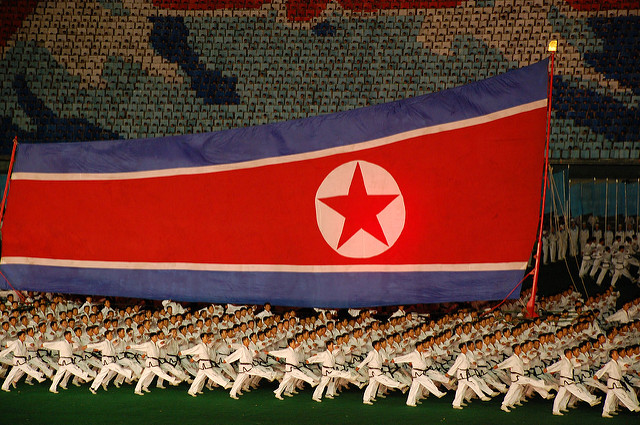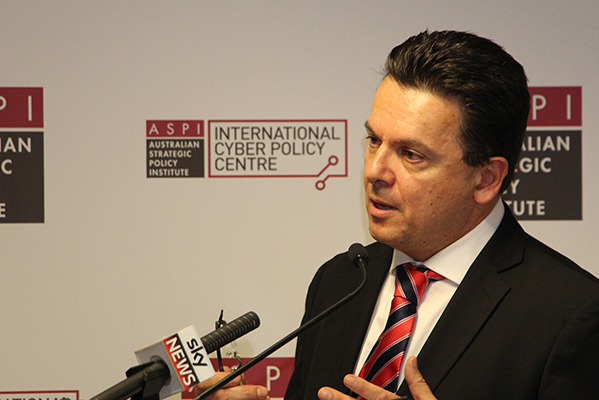ASPI suggests

Hey, ya!
The greatest reality TV show on earth continued apace this week, with the revelation that literal Fake News adorned the walls of some Trump Organization properties. This corker of a piece from Amelia Lester in Saturday’s Good Weekend pulls back the curtain on how life inside the beltway morphs when a new President gets to work. And here’s some fine journalism on the back of recent tensions between the Oval Office and the FBI. But the pick of the week has to be this chronicle of All The President’s Lies:
‘Trump told a public lie on at least 20 of his first 40 days as president. But based on a broader standard — one that includes his many misleading statements (like exaggerating military spending in the Middle East) — Trump achieved something remarkable: He said something untrue, in public, every day for the first 40 days of his presidency. The streak didn’t end until March 1.’
If these walls could talk… well, some in Berlin’s Bundestag do just that: they’re tattooed with graffiti left by Soviet vandals in 1945, which was rediscovered in 1995 and is viewable today if you can get yourself on the public tour. Cool.
Some choice reading on the DPRK this week; let’s kick off with this eye-opening new report from 38 North. The publication, part of the North Korea Instability Project, unpacks the hermit kingdom’s use of chemical and biological weapons of mass destruction. Also from 38 North are these two quick reads, the first on Donald Trump and Moon Jae-in’s role in halting North Korea from developing long-range nukes, and the second on North Korean propaganda on foreign leaders. But this longread from Undark steals the show: author Sara Talpos delves into the work behind a program that’s aiming to unite the Korean peninsula’s health care system.
Re-upping this 1973 interview between Italian journalist, Oriana Fallaci, and Mohammed Reza Pahlevi, the Shah of Iran. It’s entirely absorbing. Some great volleys and rallies in there raise the tension through to the final line.
Headlining our fresh research pics this week is an effort from Breakthrough—a climate change focused organisation from Down Under—called ‘Disaster Alley: Climate Change, Conflict & Risk’. For a fascinating look at findings from the 2017 Arab Youth Survey, don’t go past the white paper that unpacks the results and offers expert commentary. CSIS’s Energy and National Security Program has a great new interactive report on how to manage environmental hazards born of onshore oil and gas production. And wrapping things up, NBR has a new commentary on the flavour of the month: China’s Belt and Road Initiative, and the impact it’ll have on Eurasia.
And finally, if you’re in the market for a new job, here’s a good one: designer-in-chief for the board games used to train CIA operatives. Don’t hate the player…
Podcast
The Longform Podcast’s new episode this week (61 mins) features senior reporter Ginger Thompson, who sits down to talk about her latest report and interview series for National Geographic and ProPublica on the horrors that took place in the Mexican border town of Allende. Thompson argues that a US-led drug bust from Texas sparked a massacre back in 2011, the horrors of which are still emerging.
Videos
The Center for a New American Security this week hosted a bevvy of big names at their annual conference. Robert Kagan, Secretary Mattis, Kori Schake, H.R McMaster, Graeme Allison and many others were on hand to navigate issues including transatlantic cooperation, PLA missile strike doctrine, civ-mil relations, surveillance and privacy, and conflict in Asia. Dip in here.
ASPI was fortunate to (again) host Admiral Harry B. Harris, Commander of the US Pacific Command, in Brisbane earlier this week. To catch up with what the Admiral had to say about the challenges that the US and Australia will face in an increasingly contested Asia–Pacific, check out our event video (23 mins).
Sick of Tokyo drift? Maybe try, Minsk drift. Or at least that’s what one tank driver had in mind as he practiced some sweet maneuvers in the Belarusian capital’s streets in the lead-up to a major military parade. We suspect that next time he mightn’t be as quick to hoon around…
Events
Canberra: Chris Barrie, Robyn Eckersley and Will Steffen are but some of the stars who will convene at UNSW ADFA in a couple of weeks to talk about how we might meet the international security challenge posed by climate change. With three years left to make a menaningful difference, it’s one not to miss.
The Coral Bell School’s annual flagship event, Australia 360, has just been announced for 8 August. Senator Penny Wong will headline the half-day conference, which will unpack Australia’s role in the Asia–Pacific and its prospects for the future. It’s an unmissable opportunity for all you policy wonks out there. Register now.
(Ed. Note: While Dave will be back here with Suggests next week, I’m signing off as I move on from ASPI. Thanks for all the fun, gang — Millie)









